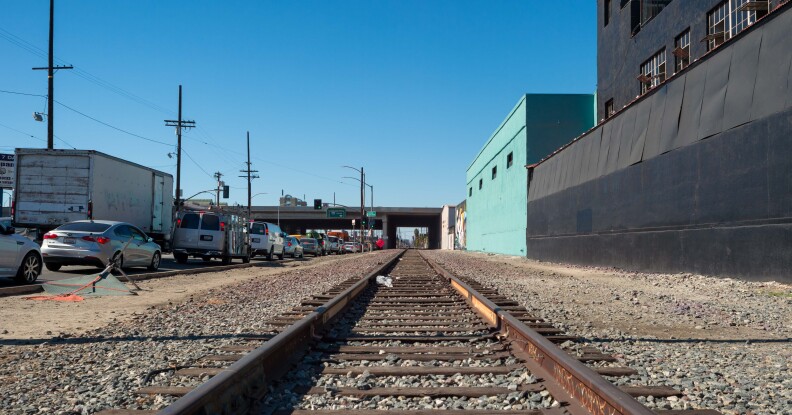Los Angeles has had its first weekend to enjoy the Metro Expo Line to Santa Monica...
And we've talked a lot about how people's lives will change as LA's public transportation expands.
But we haven't really discussed the identity change LA could have with more options beyond cars
David L. Ulin is the author of a number of books about Los Angeles. The most recent is called "Sidewalking: Coming To Terms With Los Angeles."
Even though many would say that Metro transportation is best served as a way to cut down on traffic, Ulin says that that's not really the point or the intention of what the rails accomplish.
"The illusion that we're going to build say a system like New York or Paris or London that would be extremely self-sufficient and allow people to get all over the city just by using a rail network is an illusion," Ulin said to Take Two's A Martinez.
In actuality, he sees this ending more along the lines of what Chicago has done. "The train fulfills a part of the transportation grid, but it also links in with bus lines, bicycles, pedestrianism. All of those components come together."
Transportation aside, Ulin also sees another net benefit to the build out of LA's Metro system. "There's a way that public transportation works as a kind of civic glue, as a unifier," Ulin said. "Because of the fact that the public is on the transportation, that it's a system that serves everybody, particularly in a city like [Los Angeles]."
There's no secret that LA was built on the idea of the maintenance of your own personal space. But Ulin believes that public transportation leads the move away from this, "fortress mentality," and he thinks it will be a change for the better. "I think cities like this need that. We need a sense of shared public engagement."
Pessimistically, it's easy to think of this as a pie-in-the-sky dream of disrupting this city's love of cars and personal space, but Ulin believes that even though it will be a slow move, it will be beneficial. "The idea of a long term vision for the city is, I think, potentially transformative for how the city operates."
To hear the full conversation, click the blue play button above



